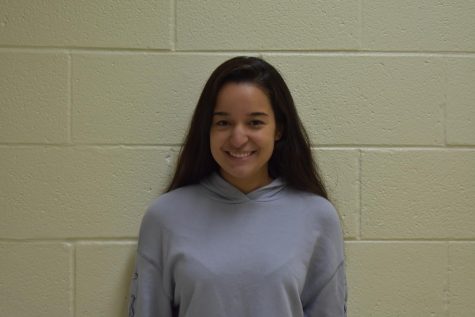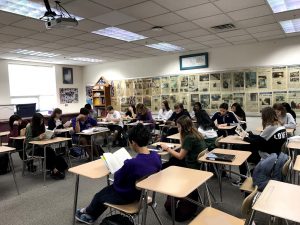ROAR does help students
September 19, 2019
All second period classes on Tuesdays start their lessons with a 16-minute reading session. 16 minutes. 16 minutes to just be able to sit down, relax and read a good book. Does it really sound that bad? 
Students are welcomed to read whatever they choose whether it’s a textbook, a book that is assigned for class, a magazine, or simply just something for pleasure. ROAR or “Reach Out and Read” will take place on every Tuesday, and on the last Tuesday of each month, “Power Talks” will be introduced.
These “Talks” can include reflections on an article, watching a Ted talk, discussions on building relationships and organization, or just talking to each other.
While others might think it is a punishment to increase their literacy, I believe one can categorize this new strategy as a stress reliever or break from the loads of homework and pressure from sports, clubs, etc.
In fact, according to The Telegraph, reading “even six minutes can be enough to reduce the stress levels by more than two thirds, according to new research. And it works better and faster than other methods to calm frazzled nerves such as listening to music, going for a walk or settling down with a cup of tea.”
Second period starts at 8:01 a.m. and having everyone’s mind 100% open and ready to learn isn’t always realistic. Now I know making students use their eyes to skim through words sounds more of an effort than a refresher, but not when one see’s how it can help start the day.
According to the BABB Inc, an organization that helps create healthier behaviors in the workplace, when one reads, memory becomes stronger due to the mental focus. In the long run, this can help decrease the chances of getting memory loss. Other benefits are the increase of richer vocabulary, critical thinking skills and the expansion of creativity.
“When we read things we’re interested in, the material gets retained and we develop an emotional bond,” Chris Chlebek, associate principal, said, “hopefully that sparks something in you to read something in a non-study time.”
These mini sessions aren’t exactly new to District 202. Schools such as Plainfield East have been doing this segment for over 9 years except, they do it twice a week, according to Chlebek.
If one wants to reach a goal at the gym whether that be losing or gaining weight, they must exercise. Same scenario here. If one wants to receive straight A’s or a 4.0 GPA, then they must exercise the brain.
If reading for 15 minutes in classroom seems to be too much, then that shows the lack of capability in students to perform in something that should be a breeze to them.



